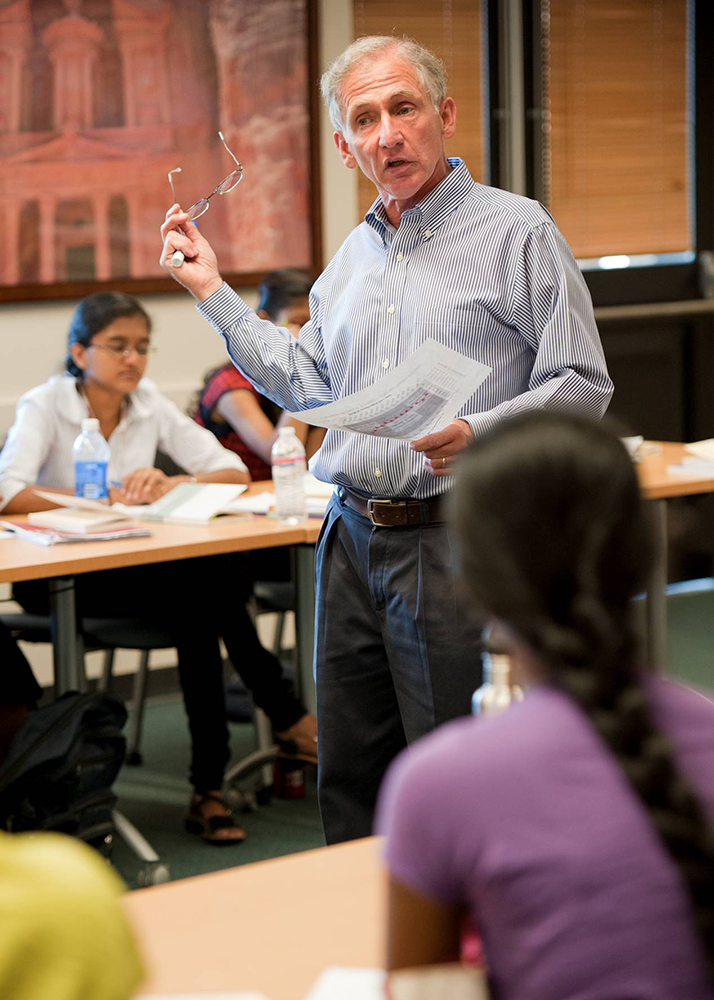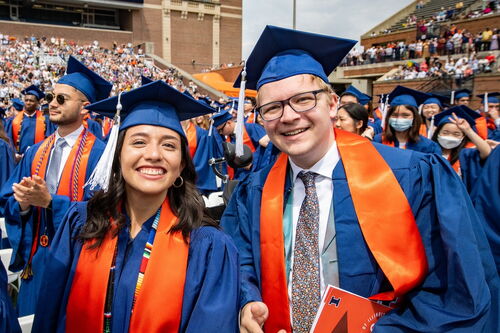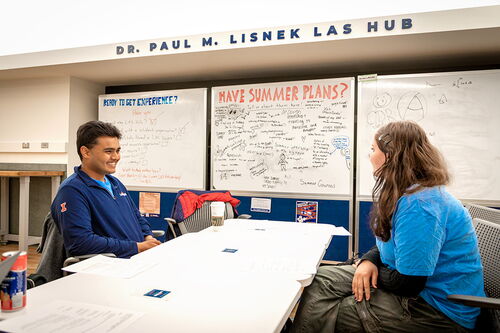A leader in advocating the liberal arts and sciences

It’s no small feat of the mind to lead university faculty, students, and staff in academic programs ranging from Greek to economics and physics. But Richard Saller (BA, ’74, history and classics) has spent a career doing it at some of the nation’s most high-profile universities. It began with an enlightening—and sometimes intense—education at Illinois.
Saller, 65, recently announced that he would step down later this year as the Vernon R. & Lysbeth Warren Anderson Dean in the School of Humanities and Sciences at Stanford University, to resume full-time teaching duties. He’s been well-respected at Stanford, where he has served as dean since 2007. He oversaw some 600 faculty, 700 staff members, and 4,500 students each year, with his guidance leaving a deep impact.
“In addition to his strategic oversight, what also stands out about Richard is his deep interest in the students and faculty who make up the school,” said Stanford President Marc Tessier-Lavigne, in an announcement in Stanford News. “He set high standards for faculty recruitment and helped to build a stellar teaching and research team. He has been attentive to mentoring them and utterly devoted to their success.”
Saller told LAS News that he is often reminded of what he learned at Illinois. He attended Illinois during a turbulent time, when the U.S. was fighting in Vietnam. Studying the classics in the midst of sometimes violent student protests (which he did not participate in) required a lot of help—and he received it from professors such as Richard Mitchell, David Bright, Vernon Robbins, and Dan Taylor, whom he recalled for their attentiveness and enthusiasm.
“The circle of classics majors was small and very friendly,” Saller said. “Altogether, I felt that I received an intimate education on a large campus.”
Saller didn’t start in the humanities at Illinois, but a course in Roman history changed his trajectory.
“The fact that I started at U of I in engineering, and then switched to classics after taking a Roman history course, showed me how important it is to encourage students to explore a breadth of intellectual interests,” Saller recalled.
That Roman history course served him well, as he went on to author and edit seven books on ancient Roman history, focusing on patronage relations, the family, and the imperial economy.
Before he joined Stanford University, he served as dean and provost at the University of Chicago for more than 10 years. Saller has also taught at the University of California-Berkley, Swarthmore College, and Jesus College, Cambridge.
“I’ve learned to appreciate the differences between individualistic and collaborative environments during my time at different institutions,” Saller said.
As dean at Stanford, Saller helped increase endowed faculty chairs—among the highest honors a professor can receive—by 26 percent and graduate fellowships by 153 percent, according to Stanford. He increased faculty diversity significantly, helping the school’s minority faculty grow to 22 percent of the total by 2016, and oversaw several renovations and new building projects.
He’s credited with advancing scientific education and research and programs in global studies. Saller has also been a successful advocate for humanities, implementing more than 24 programs and initiatives supporting the humanities during the past seven years. Enrollments in the humanities at Stanford have increased over the past five years.
“I have also tried to build international studies,” Saller said. “Ten years ago, Stanford offered very little in Middle Eastern or South Asian studies. We have recruited faculty and expanded our programs in those fields because they are so important in the world order of the 21st century.”
Debra Satz, the Marta Sutton Weeks Professor of Ethics in Society at Stanford, told Stanford News that Saller has key attributes that help him lead such a wide array of people.
“He has a sense of fairness and a moral compass, a commitment to service – to seeing his role as one of serving the school and the faculty – and a great sense for how to manage complex processes and complex people,” she said. “Plus, he can quote Thucydides!”
After 24 years of full-time administration, Saller is excited to return to a career full-time scholarship and teaching.
“I am very grateful for the educational foundation that U of I gave me,” Saller said.








